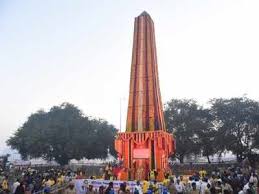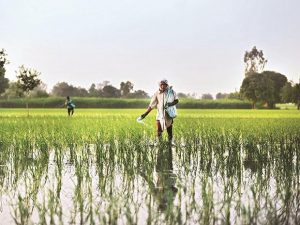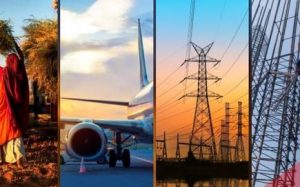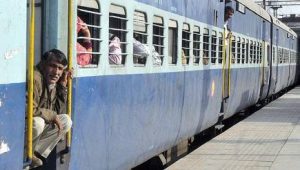Table of Contents
Daily Current Affairs for Government Exams:
Today Current Affairs: 1st January 2020 for UPSC IAS exams, State PSC exams, SSC CGL, State SSC, RRB, Railways, Banking Exam & IBPS, etc.
Contents:
- Indian History Congress.
- Bhima Koregaon anniversary.
- Swachh Survekshan 2020.
- PM – KISAN scheme.
- National Infrastructure Pipeline.
- Merchant Discount Rate.
- RPF renamed as Indian Railways Protection Force Service; Railway prices hiked.
- Kerala: the first state to pass anti-CAA resolution.
- Other important current affairs.
1. Indian History Congress:

Recently, the 80th session of the Indian History Congress (IHC) was held at Kannur, Kerala.
It called upon political and administrative authorities to pursue the constitutional duty of promoting composite culture, which is vital to promoting the territorial unity of India.
What is the Indian History Congress?
- Founded in 1935, the Indian History Congress(IHC) is the largest association of professional historians in South Asia.
- It has about 35000 members of which over 2000 delegates participate in its session every year.
- It has been holding its sessions very regularly from its inception and publishing its proceedings every year since 1935.
- Its main objective is to promote secular and scientific writing of history.
2. Bhima Koregaon anniversary:

The 202nd anniversary of the Bhima-Koregaon battle of 1818 was observed on January 1, 2020.
About the Bhima- Koregaon battle:
- A battle was fought in Bhima Koregaon, a district in Pune with a strong historical Dalit connection, between the Peshwa forces and the British on January 1, 1818.
- The British army, which comprised mainly of Dalit soldiers, fought the upper caste-dominated Peshwa army.
- The British troops defeated the Peshwa army.
Outcomes of the battle:
- The victory was seen as a win against caste-based discrimination and oppression. Peshwas were notorious for their oppression and persecution of Mahar Dalits.
- The victory in the battle over Peshwas gave Dalits a moral victory a victory against caste-based discrimination and oppression and a sense of identity.
- However, the divide and rule policy of the British created multiple fissures in Indian society which is even visible today in the way of excessive caste and religious discrimination which needs to be checked keeping in mind the tenets of the Constitution.
Bhima Koregaon as a Dalit symbol:
- The battle has come to be seen as a symbol of Dalit pride because a large number of soldiers in the Company forces were the Mahar Dalits. Since the Peshwas, who were Brahmins, were seen as oppressors of Dalits, the victory of the Mahar soldiers over the Peshwa force is seen as a Dalit assertion.
- On 1 January 1927, B.R. Ambedkar visited the memorial obelisk erected on the spot which bears the names of the dead including nearly two dozen Mahar soldiers. The men who fought in the battle of Koregaon were the Mahars, and the Mahars are Untouchables.
3. Swachh Survekshan 2020:

The Ministry of Housing and Urban Affairs (MoHUA) has announced the results of the first (April-June) and second (July- September) quarters of Swachh Survekshan 2020.
- Swachh Survekshan 2020 is the 5th edition of the annual urban cleanliness survey conducted by the Ministry.
Format:
- Swachh Survekshan 2020 is evaluated for each quarter on the basis of monthly updation of Swachh Bharat Mission-Urban (SBM-U) online Management Information System (MIS) by cities along with citizen’s validation on the 12 service level progress indicators.
- Swachh Survekshan 2020 has been conducted in 3 quarters:
- April – June
- July – September
- October – December 2019
- These quarterly assessments will hold 25% weightage in the annual survey which is scheduled to commence from 4th January 2020 across India.
- It includes five zones namely, North, East, Northeast, South, and West.
Key Points
- Indore (Madhya Pradesh) and Jamshedpur (Jharkhand) have topped the cleanliness charts for two consecutive quarters among cities with over 10 lakh population and with 1 lakh to 10 lakh population respectively.
- Kolkata ranked at the bottom of the ranking of 49 major cities across both quarters as West Bengal did not participate in the nationwide exercise.
- Among cantonment boards, Tamil Nadu’s St.Thomas Mount Cantt was ranked 1st in quarter 1 whereas Delhi Cantt ranked first in the 2nd quarter.
- Secunderabad Cantonment Board in Hyderabad is the worst performer among other cantonment boards
4. PM – KISAN scheme:

The Centre will transfer over Rs. 12,000 crores to the bank accounts of more than 6 crore farmers under the flagship PM-Kisan Scheme.
About Pradhan Mantri Kisan Samman Nidhi:
- Under this program, vulnerable landholding farmer families, having cultivable land up to 2 hectares, will be provided direct income support at the rate of Rs. 6,000 per year. This income support will be transferred directly into the bank accounts of beneficiary farmers, in three equal installments of Rs. 2,000 each.
- The complete expenditure of Rs 75000 crore for the scheme will be borne by the Union Government in 2019-20.
What is a small and marginal landholder family?
- It comprises of husband, wife and minor children up to 18 years of age, who collectively own cultivable land up to two hectares as per the land records of the concerned states.
Significance of the scheme:
- Around 12 crore small and marginal farmer families are expected to benefit from this.
- It would not only provide assured supplemental income to the most vulnerable farmer families but would also meet their emergent needs especially before the harvest season. It would pave the way for the farmers to earn and live a respectable living.
5. National Infrastructure Pipeline:

The government has released Report of the Task Force on National Infrastructure Pipeline for 2019-2025.
- Prime Minister in his Independence Day speech 2019 had highlighted that ₹100 lakh crore would be invested in infrastructure over the next 5 years.
- The emphasis would be on ease of living: safe drinking water, access to clean and affordable energy, healthcare for all, modern railway stations, airports, bus terminals, and world-class educational institutes.
- Task Force was constituted to draw up the National Infrastructure Pipeline (NIP) for each of the years from financial years 2019-20 to 2024-25.
National Infrastructure Pipeline
- NIP will enable a forward outlook on infrastructure projects which will create jobs, improve ease of living, and provide equitable access to infrastructure for all, thereby making growth more inclusive.
- NIP includes economic and social infrastructure projects.
- During the fiscals 2020 to 2025, sectors such as Energy (24%), Roads (19%), Urban (16%), and Railways (13%) amount to around 70% of the projected capital expenditure in infrastructure in India.
- It has outlined plans to invest more than ₹102 lakh crore on infrastructure projects by 2024-25, with the Centre, States and the private sector to share the capital expenditure in a 39:39:22 formula.
6. Merchant Discount Rate:
It is a fee charged from a merchant by a bank for accepting payments from customers through credit and debit cards in their establishments.
- MDR compensates the card-issuing bank, the lender which puts the PoS terminal and payment gateways such as Mastercard or Visa for their services.
- MDR charges are usually shared in pre-agreed proportion between the bank and a merchant and is expressed in percentage of the transaction amount.
In News:
From January onwards, all companies with a turnover of Rs 50 crore or more need to provide the facility of payment through RuPay Debit card and UPI QR code to their customers, under which no MDR fee will be charged from customers as well as merchants
7. RPF renamed as Indian Railways Protection Force Service; Railway prices hiked:

The Railways Ministry has renamed Railway Protection Force (RPF) as Indian Railway Protection Force Service.
- The ministry has also accorded Group A status to RPF.
Railway Protection Force:
The RPF was formed under the Railway Protection Force Act, 1957. Under the act, the RPF personnel has the power to search, arrest, investigate and prosecute. However, the ultimate power lies in the hands of Government Railway Police.
Price Hikes :
The Indian Railways has increased the train fares to 1p per km from January 1, 2020, in non-suburban trains and non-air-conditioned trains. The fares have been hiked by 2p per km. The price hike was published by Indian Railway Conference Association.
8. Kerala: the first state to pass anti-CAA resolution:

The Kerala Government on December 31, 2019, passed a resolution to roll back the Citizenship Amendment Act (CAA) that was passed during this winter session of Parliament.
According to the Kerala Government, the CAA act contradicts the basic principles of the Constitution.
According to the Government of Kerala, the act was against secularism and has triggered widespread protests in the country. The act also denied India’s image among the international community.
Other important current affairs:
1. Recently, the 2019 report by Forest Survey of India (FSI) was released. It states that about 21.40% of forest cover in India is prone to fires, with forests in the north-eastern region and central India being the most vulnerable.
2. Recently, the Supreme Court of India held that the Government has no right to transfer “invaluable” community resources like village water ponds to powerful people and industrialists for commercialization of the property.
It is necessary to protect village commons for safeguarding the fundamental right guaranteed by Article 21 of our Constitution. These common areas like water ponds and wells are the lifeline of village communities and often sustain various chores and provide resources necessary for life.
3.10,000 cameras to be used in Gujarat Lion Census, 2020. The Wildlife Institute of India (WII) is to conduct the Asiatic Lion Census in May 2020. The Institute will use 10,000 cameras to conduct the census.
4. According to a report released by the UK based Centre for Economics and Business Research (CEBR), India will overtake Germany in 2026 to become the world’s fourth-largest economy. The report also said that by 2034, India will overtake Japan and become the third-largest economy in the world.
5. On January 1, 2020, India and Pakistan exchanged their nuclear installations under an agreement that prevents them from attacking each other’s atomic facilities. The practice is being followed for 29 years for now.
6. The Ministry of Agriculture on December 31, 2019, announced that the sowing area of rabi crops has increased by 36 lakh hectares.
7. On December 31, 2019, Finance Minister Nirmala Sitaraman announced 102 lakh crore worth projects to be implemented in the next 5 years. During the announcement, she also released the report of Task Force on National Infrastructure Pipeline for 2019-2025.




